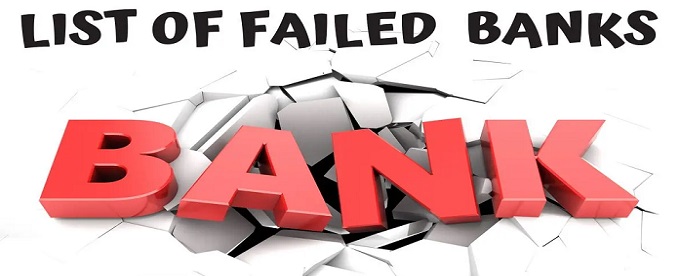E-Financial
Naira Nears N400/Dollar as Forex Scarcity Bites Harder

The Naira is gradually nearing N400 to a United States dollar due to limited dollar supply and reluctance of foreign portfolio investors to dig into the Nigeria economy.
On Monday, the Naira dropped to 382 against the United States dollar at the parallel market on Monday, down from the 380 it closed on Friday.
Foreign exchange traders blamed the plummeting local currency on the Central Bank of Nigeria (CBN) currency controls which has resulted in inadequate forex at the interbank market.
Analysts have predicted that the Naira may close as high as N400 per dollar this week as foreign portfolio investors continued to stay on the sidelines until the Nigerian economy showed signs of recovering from the impact of currency controls.
A further report from the Punch added that the naira had hit an all-time low of 334.50 per dollar on Wednesday, a day after the Central Bank of Nigeria hiked interest rates to try to lure foreign investors back into local assets.
On Monday, the naira closed at 316.37 against the dollar at the interbank market. On Friday, it closed at 321.16 to the dollar, compared to 292.40 the previous Friday.
According to financial analysts and experts, the naira may weaken further, especially at the interbank market, if the CBN fails to intervene at the market this week.
The CBN had asked for quotes of $5m each from currency traders on Wednesday as it sold the US currency to boost dollar liquidity and support the naira, traders said on Monday.
The naira opened at 315 to the dollar and weakened to 324 before the central bank intervened to help the currency close at 316.37. A total of $27.05m was traded on Monday, Thomson Reuters data showed.
“The market still lacks enough liquidity, we need to do more to boost liquidity. The current rate is a measure of the amount of dollar liquidity at the interbank market,” Mr. Kunle Ezun, a currency analyst at Ecobank Nigeria, said.
He believes that the market will improve in the coming months and boost the naira value.
Mr. Johnson Chukwu, chief executive officer, Cowry Asset Management Limited said, “We are in a very challenging situation as a country and the CBN needs to do something urgently to stabilise the exchange rate at the interbank market.
“If the CBN fails to intervene, the naira may fall further against the dollar at the interbank market. If it does, the naira may appreciate to say about 310 to the dollar. But the point is that the market needs sustained intervention until there is a calm that will assure the foreign investors that things are now normal.”
Chukwu noted that the CBN might need to access close to $10bn facility from the World Bank to stabilise the forex market.
Mr. Lukman Otunuga, a research analyst at FXTM, noted that the elevated concerns over a potential technical recession in Nigeria had forced the CBN to relinquish its naira peg.
“With the parallel and official markets potentially closing the gap as the naira floats, liquidity could increase as investors send their dollars to the official exchange. As of now, the naira could depreciate further as a combination of rising US Fed rate hike expectations and ongoing fears over the domestic economy encourage investors to install another round of selling,” he said.
E-Financial
NDIC Intensifies Failed Banks Debt Recovery to Accelerate Depositors Payout

The Nigeria Deposit Insurance Corporation (NDIC) has intensified debt recovery efforts involving failed banks and mobile money operators in a move aimed at accelerating payments to depositors. The Corporation is engaging its debt recovery agents to familiarise them with the enhanced tools and enforcement mechanisms contained in the NDIC Act 2023.

In recognition of the critical role of debt recovery, the NDIC Act 2023 significantly strengthened and expanded the powers of the Corporation. The objective, according to Thompson Oludare, managing director/chief executive, NDIC, is to enable quicker and more effective recoveries, thereby accelerating the reimbursement of depositors.
Represented by Olufemi Oladepo Kushimo, director of the Legal Department at NDIC, he welcomed participants to the sensitisation seminar for NDIC Debt Recovery Agents in Lagos, saying prompt reimbursement of depositors reinforces public confidence in the banking system and encourages continued savings within formal financial institutions.
“Your role is central to this objective. The success of liquidation dividend payments and depositor protection depends heavily on the efficiency and effectiveness of your recovery efforts. The enhanced provisions of the NDIC Act are designed to support you in this task, and this seminar aims to familiarise you with these expanded powers,” he said.
He explained that the Act now provides strengthened tools for recovering debts, including measures to address recalcitrant debtors and, where necessary, issues involving criminal infractions. Participants at the seminar are being guided on how to identify such infractions and how they may be referred to the appropriate agencies for prosecution, as well as the practical steps required for efficient debt recovery to support the payment of liquidation dividends.
“We currently have a number of banks in liquidation, including some that have been in that status for some time. In several instances, challenges such as protracted litigation, repeated adjournments and an entrenched culture of loan default have hindered effective recovery. These realities informed the strengthening of the Act and highlight the need for all stakeholders to be fully aligned and equipped to utilise these powers properly and responsibly in pursuit of the Corporation’s mandate,” Oludare said.
He added that the NDIC Act 2023 provides a comprehensive bouquet of tools for debt recovery, which the Corporation is prepared to deploy fully. “We intend to utilise every section, provision and enforcement mechanism available under the law. This includes pursuing parties at fault, not only to enhance recoveries, but also to serve as a deterrent and to sanitise the banking industry.
“Those responsible for bank failures must be held accountable. We are prepared to apply every relevant provision of the Act to ensure effective recovery and to bring culpable parties to justice,” he said.
Patricia Okosun, director of the Asset Management Department, said the revised Act has strengthened the overall framework for debt recovery and enhanced the mechanisms through which outstanding obligations are pursued.
“We are engaging debt recovery agents to familiarise them with the additional tools now available under the revised Act, beyond what they previously relied on. The essence of this engagement is to sensitise them to the new provisions that will support and improve their work. We are confident that these enhanced powers will enable us to recover more debts, and more efficiently, so that we can reimburse depositors,” she said.
She added that the Corporation remains optimistic about recovery prospects. “That optimism is precisely why we are equipping recovery agents with strengthened legal tools. Our objective is to recover as much as possible.
“Naturally, the earlier the recovery, the better, as it enables quicker reimbursement of depositors. However, given the realities of litigation and related processes, it is not possible to fix a definite timeline. What remains clear is that speed and efficiency are priorities,” Okosun said.
E-Financial
OAU, UNN Graduates Top Unity Bank Corpreneurship Challenge Across 10 States

Unity Bank Plc has announced winners in the 27th edition of its flagship Entrepreneurship Development Initiative, also known as Corpreneurship Challenge, following the conclusion of Business Pitch at the Batch C, Stream 2 edition of the National Youth Service Corps (NYSC) orientation programme held across 10 states of the federation.

Unity Bank
Notably, Corps Members who graduated from Obafemi Awolowo University (OAU), University of Nigeria, Nsukka (UNN), The Polytechnic, Ibadan, amongst several tertiary institutions, emerged from the latest round of the Corpreneurship Challenge business pitch. Participants pitched business ideas across diverse sectors such as fashion, agribusiness, footwear production, and services.
At the Lagos State NYSC Orientation Camp, Awolumate Fawaz Babatunde, a Civil Engineering graduate of The Polytechnic, Ibadan, emerged the overall winner after pitching a fashion design business, clinching the N800,000 grand prize. Ugwoke Daniel Ifechukwu, a graduate of the University of Nigeria, Nsukka, emerged first runner-up to receive N500,000.
In Rivers State, Abdur-Razaq Sayfullah Adebola, a graduate of Obafemi Awolowo University, topped the competition at the Nonwa Gbam Tai NYSC Orientation Camp with a footwear-making business plan. Meanwhile, Olatunde Esther Funmilayo of Olabisi Onabanjo University emerged as the winner at the Kwara State NYSC Orientation Camp after impressing judges with her deodorant production and services pitch.
More winners emerged from Abuja, Niger, Adamawa, Jigawa, Plateau, Kaduna, and Delta States, further expanding the geographical reach and impact of the initiative.
Speaking on the latest edition of the programme, Mrs. Adenike Abimbola, Divisional Head, Retail, SME & E-Business at Unity Bank Plc, said the Corpreneurship Challenge continues to reflect the Bank’s commitment to youth empowerment and enterprise development.
“The Corpreneurship Challenge has been driven by our commitment to boosting entrepreneurship among young people, especially fresh graduates. At Unity Bank, we recognise that many young Nigerians possess viable business ideas but lack the initial capital and support to bring them to life. The Corpreneurship Challenge was designed to bridge that gap by providing financial backing, mentorship, and confidence to fresh graduates at a critical stage of their lives,” she said.
She added that the quality of ideas presented by corps members across states underscores the growing entrepreneurial appetite among Nigerian youths.
“What we see every edition is innovation, resilience, and a strong desire among young graduates to create value and jobs. By supporting them early, we are not only helping individuals, but also contributing to the growth of the SME ecosystem and the broader economy,” Abimbola noted.
Over the years, the Unity Bank Corpreneurship Challenge has become a key feature of the NYSC orientation programme, delivered in partnership with the NYSC Skill Acquisition and Entrepreneurship Development (SAED) initiative. Since its inception, the programme has produced 638 young entrepreneurs nationwide, offering grants of up to N300 million to help corps members kick-start or scale their businesses.
The initiative aligns with the Federal Government’s drive to promote entrepreneurship and self-employment among graduates, particularly amid the shrinking availability of white-collar jobs.
Unity Bank said it remains committed to expanding the reach of the Corpreneurship Challenge and deepening its support for young entrepreneurs as part of its broader strategy to drive financial inclusion, job creation, and sustainable economic growth.
E-Financial
NDIC Says No Customer Loses Deposits in Failed Banks

Nigeria Insurance Deposit Corporation (NDIC) has guaranteed customers of insured commercial banks prompt recovery of their deposits in the event of risk liability or liquidation.

In addition, the corporation assured depositors of its statutory mandate, which includes supervising banks for risk assessment, ensuring ethical standards, and enhancing financial stability in the country.
Mrs Emily Osuji, executive director, Corporate Services, NDIC, gave the assurance during a Stakeholders Town Hall Meeting on customer protection regarding bank charges and deposits in Kano.
Mrs Osuji posited that the NDIC has, in recent times, demonstrated a strong commitment to protecting the hard-earned savings of Nigerians and sustaining confidence in the banking system.
She cited the cases of defunct Heritage Bank Limited, Union Homes Plc and Aso Savings and Loans Plc, where depositors received their deposits promptly after meeting the relevant requirements.
The NDIC boss, however, reminded customers to link their Bank Verification Number (BVN) as a unique identifier to locate their alternate accounts, where their claims will be transferred.
The executive director affirmed that NDIC has expanded coverage to protect about 99 per cent of depositors in Nigeria, a deliberate policy aimed at protecting small savers, promoting financial inclusion, and enhancing trust in the banking sector.
She said, “The corporation fulfils its role through its core mandates of deposit guarantee, bank supervision, distress resolution and bank liquidation, all of which are geared towards protecting the hard-earned savings of Nigerians and sustaining confidence in the banking system.
“Our strapline, ‘Protecting your bank deposits!’, is more than mere words for us. We stand by this statement as a firm commitment to our mandate of ensuring that depositors have access to their hard-earned savings in the event of bank failure.
“This is a critical responsibility that we do not take lightly. This is especially so in times of financial uncertainty and distress, with the NDIC standing as a pillar of safety and reassurance for depositors, particularly the most vulnerable.”
Speaking on the concept of stakeholder engagement, Hawwau Gambo, head of Communication and Public Affairs, said the corporation was compelled to provide clarity, build trust and strengthen depositor confidence amid misconceptions.
Gambo noted that the recent revocation of the operating licences of some banks by the Central Bank of Nigeria, (CBN) and the current public discourse on banks’ recapitalisation efforts have reinforced the need for sustained stakeholder engagement.
She reminded that sustained awareness is pertinent to dust, given already heightened public interest and featured public confidence in the financial institutions.
“NDIC’s last Public Awareness Survey highlighted the need to enhance interpersonal communication channels to improve public understanding of deposit insurance. It is against this backdrop that the Stakeholders’ Town Hall Meetings were conceived as a structured, interactive platform for dialogue, education and feedback,” Gambo noted.

 General News2 days ago
General News2 days agoCBN, NCC Propose Instant Refunds for Failed Airtime, Data

 Telecom2 days ago
Telecom2 days agoSafer Internet Day: Sophos Warns – 42% Attacks Hit Stolen Logins in 2025

 News2 days ago
News2 days agoEcobank Nigeria to Host Customer Forum on Strengthening Regional Integration for Economic Transformation

 News2 days ago
News2 days agoLagos to Establish West Africa’s Premier International Financial Centre

 General News2 days ago
General News2 days agoFG Launches the Happy Woman App Platform

 News2 days ago
News2 days agoLasaco Assurance Gets Shareholders Approval to Advance Capitalization Plans

 E-Financial2 days ago
E-Financial2 days agoNDIC Says No Customer Loses Deposits in Failed Banks

 Telecom1 day ago
Telecom1 day agoInside Nigeria’s Telecom Exploitation Crisis Draining Household Budgets















